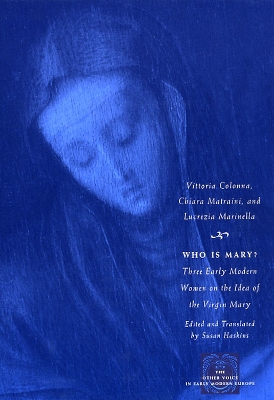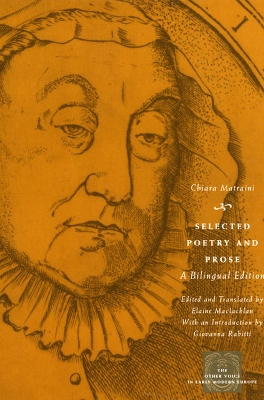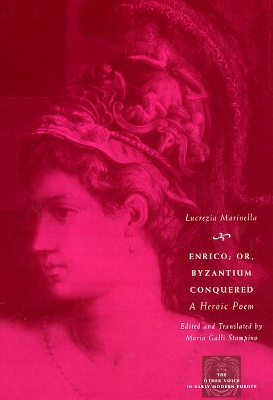Other Voice in Early Modern Europe
5 total works
The Nobility and Excellence of Women, and the Defects and Vices of Men
by Lucrezia Marinella and Anne Dunhill
Published 1 January 2000
A gifted poet, a women's rights activist, and an expert on moral and natural philosophy, Lucrezia Marinella (1571-1653) was known throughout Italy as the leading female intellectual of her age. Born into a family of Venetian physicians, she was encouraged to study, and, fortunately, she did not share the fate of many of her female contemporaries, who were forced to join convents or were pressured to marry early. Marinella enjoyed a long literary career, writing mainly religious, epic, and pastoral poetry, and biographies of famous women in both verse and prose. Marinella's masterpiece, "The Nobility and Excellence of Women, and the Defects and Vices of Men" was first published in 1600, composed at a furious pace in answer to Giusepe Passi's diatribe about women's alleged defects. This polemic displays Marinella's vast knowledge of the Italian poetic tradition and demonstrates her ability to argue against authors of the misogynist tradition from Boccaccio to Torquato Tasso. Trying to effect real social change, Marinella argued that morally, intellectually, and in many other ways, women are superior to men.
For women of the Italian Renaissance, the Virgin Mary was one of the most important role models. "Who Is Mary?" presents devotional works written by three women better known for their secular writings: Vittoria Colonna, famed for her Petrarchan lyric verse; Chiara Matraini, one of the most original poets of her generation; and the wide-ranging, intellectually ambitious polemicist Lucrezia Marinella. At a time when the cult of the Virgin was undergoing a substantial process of redefinition, these texts cast fascinating light on the beliefs of Catholic women in the Renaissance, and also, in the cases of Matraini and Marinella, on contemporaneous women's social behavior, prescribed for them by male writers in books on female decorum."Who Is Mary?" testifies to the emotional and spiritual relationships that women had with the figure of Mary, whom they were required to emulate as the epitome of femininity. Now available for the first time in English-language translation, these writings suggest new possibilities for women in both religious and civil culture and provide a window to women's spirituality, concerning the most important icon set before them, as wives, mothers, and Christians.
Chiara Matraini (1515-1604) was a member of the great flowering of poetic imitators and innovators in the Italian literary heritage begun by Petrarch, cultivated later by the lyric poet Pietro Bembo, and supplanted by the epic poet Torquato Tasso. Though without formal training, Matraini excelled in a number of literary genres popular at the time - poetry, religious meditation, discourse, and dialogue. In her midlife, she published a collection of erotic love poetry, but later in life her work shifted toward a search for spiritual salvation. Near the end of her life, she published a new poetry retrospective. Previously available in only a handful of rare book collections, her writings are now adeptly translated here for an English-speaking audience and situated historically in an introduction by noted Matraini expert Giovanna Rabitti. "Selected Poetry and Prose" allows the poet to finally take her place as one of the seminal authors of "The Renaissance", next to her contemporaries Vittoria Colonna and Laura Battiferra, also published in the "Other Voice" series.
Lucrezia Marinella (1571-1653) is, by all accounts, a phenomenon in early modernity: a woman who wrote and published in many genres, whose fame shone brightly within and outside her native Venice, and whose voice is simultaneously original and reflective of her time and culture. In "Enrico"; or, "Byzantium Conquered", one of the most ambitious and rewarding of her numerous narrative works, Marinella demonstrates her skill as an epic poet. Now available for the first time in English translation, "Enrico" retells the story of the conquest of Byzantium in the Fourth Crusade. Marinella intersperses historical events in her account of the invasion with numerous invented episodes, drawing on the rich imaginative legacy of the chivalric romance. Fast-moving, colorful, and narrated with the zest that characterizes Marinella's other works, this poem is a great example of a woman engaging critically with a quintessentially masculine form and subject matter, writing in a genre in which the work of women poets was typically shunned.



